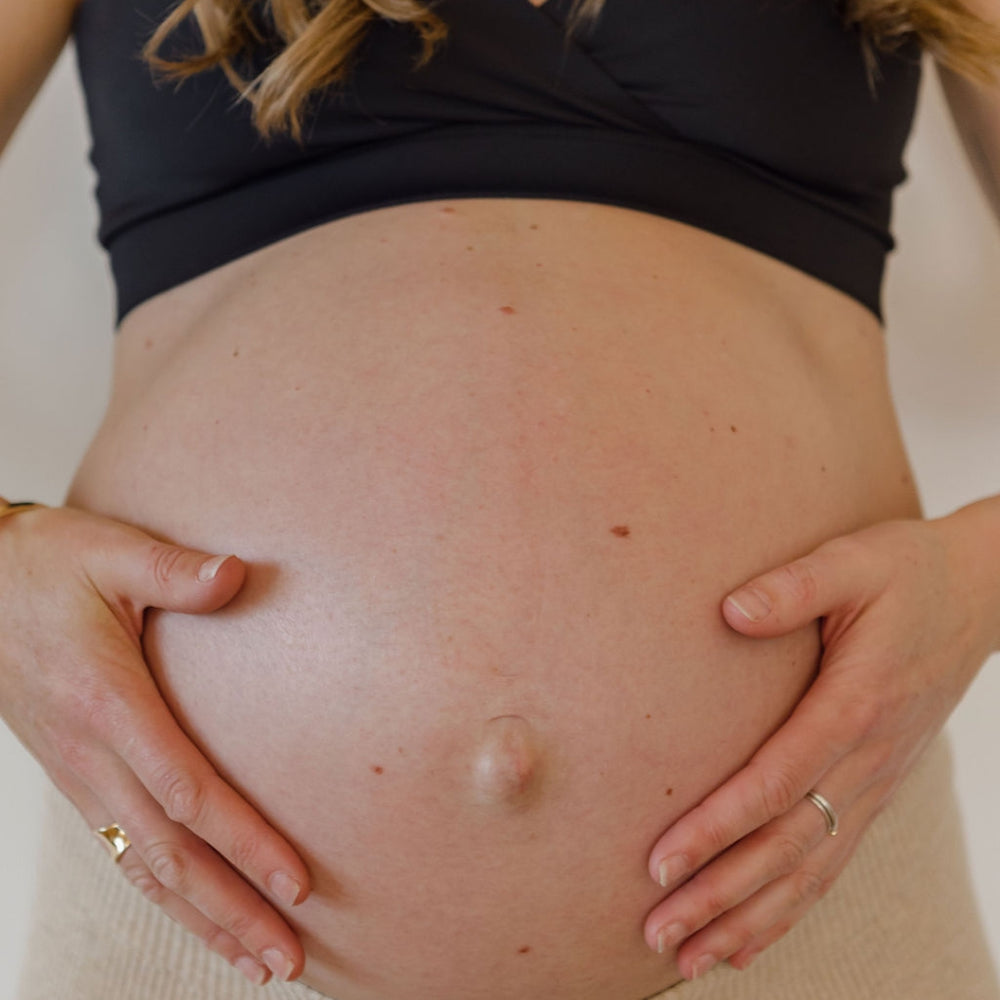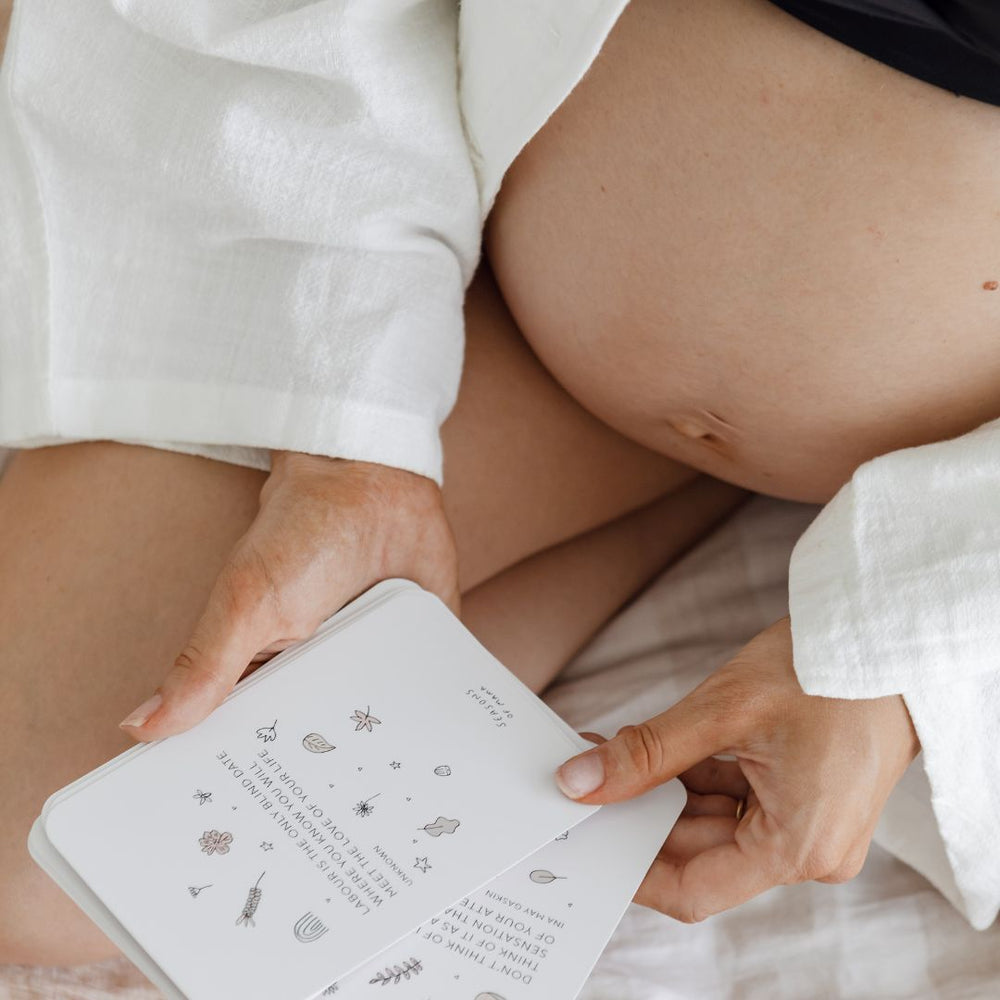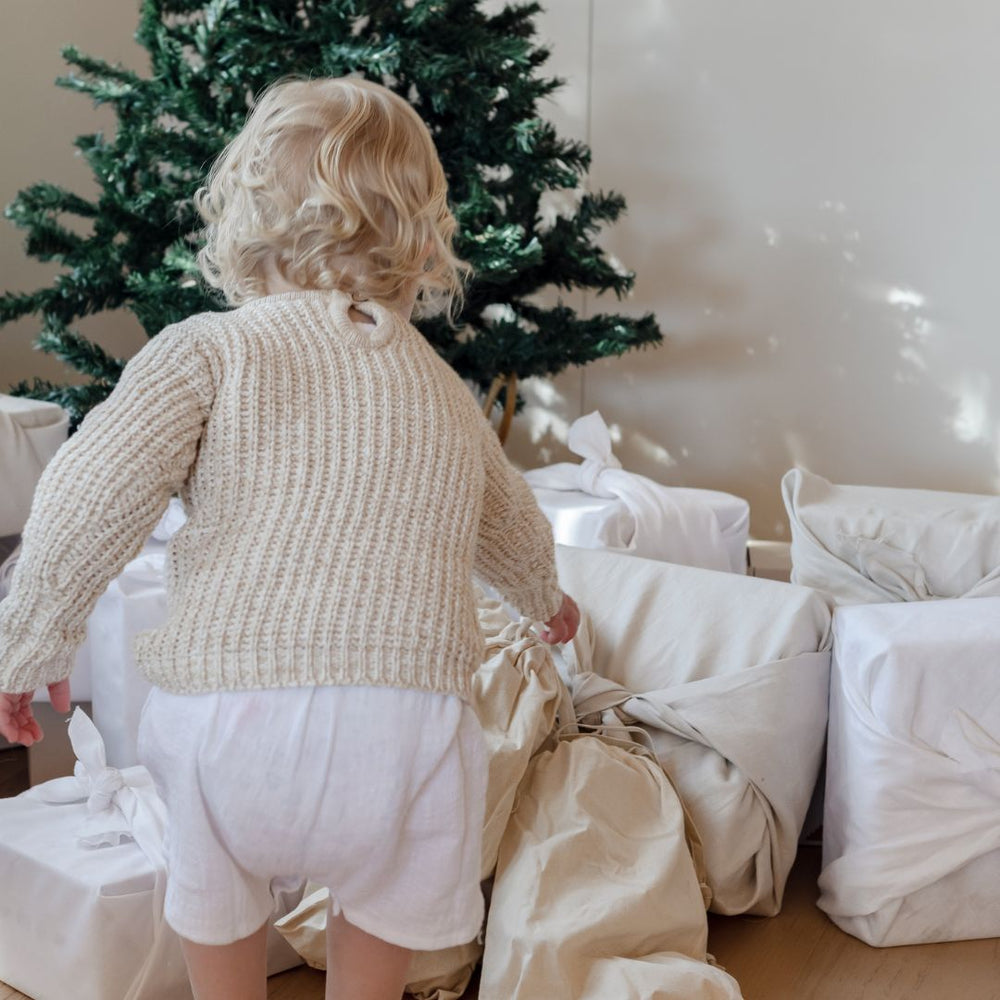This is your year, mama. The year you get ready to bring your brand-new tiny human into the world. And while you can prepare the perfect nursery, cutest wardrobe, or cuddliest toys before bringing your little one home, one of the most important aspects to prepare yourself for is birth.
There are many different options for learning about what you can expect for labour, birth, and beyond, so to cover some of the most important areas we sought the help of an expert. Midwife Lauretta Hamilton is a childbirth educator with more than a decade in the business of birthing (plus, she’s a mama herself, so she’s gone through it all before).
Here’s what she had to say.
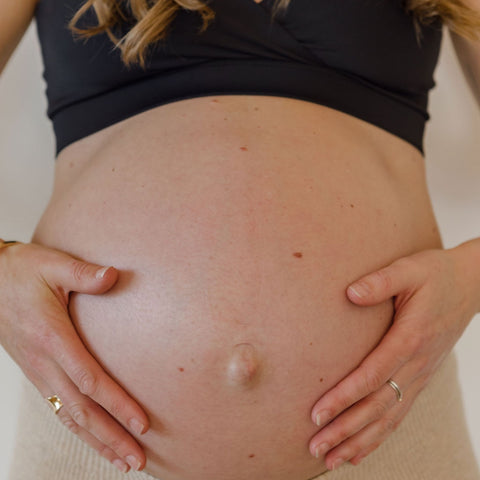
What is childbirth education (and why is it so important?)
Childbirth education is exactly what it sounds like; any form of education around the birthing process, whether that’s pre-birth, labour, or postpartum. With so many different options for birth in the modern world (including delivery, interventions, or pain management), it’s important to know about your options to find out what you might be most comfortable with.
“Birth might be unpredictable, but it’s not unpreparable,” says Lauretta.
“We know that knowledge helps reduce fear, and often fear is worsened when we don’t know about something. When you understand what’s happening, what to expect, and have the skills and tools to make it more manageable and work with it, you can feel more capable to face what’s ahead.”
“We know that the experience of birth might only last a day or two, but its impacts can last a lifetime. It deserves your time, dedication, and preparation.”
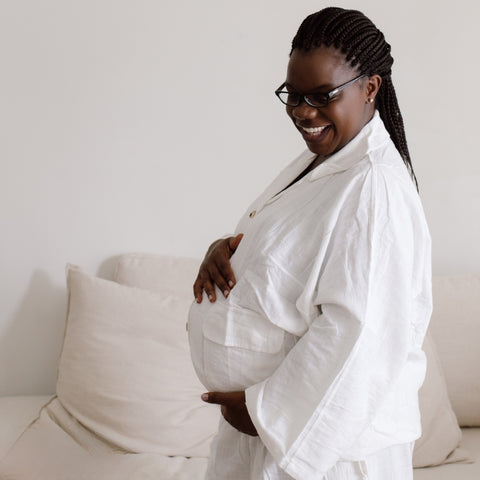
When should I start preparing for birth?
When it comes to starting your birth education journey, Lauretta says it’s never too early to start listening to and reading birth stories.
“It’s the most ancient form of birth education, to learn about other’s birth experiences,” she says.
This can come with its pros and cons, depending on the type of stories you’re listening to. So, if you’re also looking to complete a birth education class or course instead, Lauretta suggests starting at the end of the second trimester.
“Anytime from around 26 weeks will ensure the information is still reasonably fresh as you get closer to birth,” she says. “But if you’re finding that fear or anxiety is impacting you, it might be good to start earlier, so you can start on shifting your mindset sooner rather than later.”
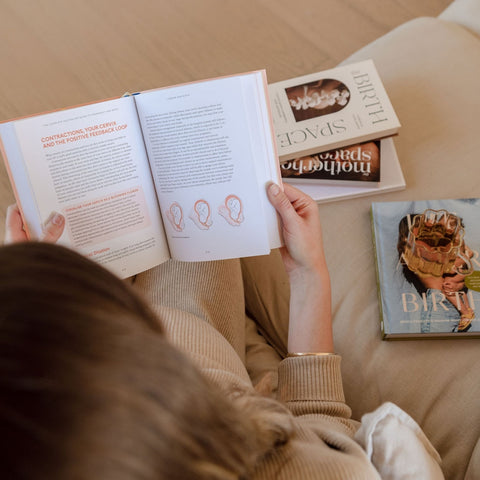
What are the main types of childbirth education?
The two main forms of childbirth education are hospital-run birth education classes, which you can often find with most local hospitals, or private birth education courses run by independents, which cover more birthing methods and locations.
“I know I’m biased (though I took my own advice around this), however, I would recommend you seek out independent birth education either in addition to, or instead of, hospital birth classes,” Lauretta says.
“The hospital birth classes are still helpful and have their place, but independent birth education means it isn’t restricted by hospital policies and will go beyond birth interventions and your pain relief options.”
“Independent birth education has been found to reduce the rates of intervention, reduce the need for pharmacological pain relief and perinatal anxiety, as well as improve the overall experience for women.”
“Think about the kind of birth you’re wanting and seek out birth education that supports that and is delivered by someone who is qualified to teach it, and who you connect with.”
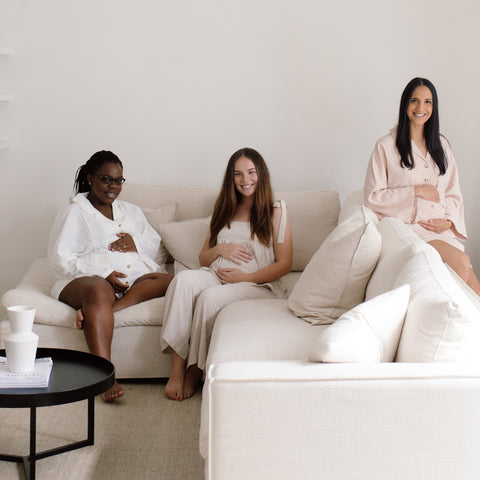
What do I need to learn before giving birth?
“I believe it’s important to prepare for birth both physically and emotionally,” Lauretta explains.
“The maternity system can be tricky to navigate. But as a mama, you always have options and decisions along the way.”
Lauretta’s own birth education classes delve into strengthening mindset (of both the person giving birth and the birthing partner), as well as learning what happens to your body; the sensations you might experience, understanding pain in labour, preparing physically in pregnancy, and every kind of birth scenario.
“Preparing for postpartum is also an important part of my classes because it’s a lot,” Lauretta adds. “Your recovery, your baby, and how to plan for this, often tender, time.”
Some key areas for birth preparation include:
Birth classes for c-section
“If you’re having a planned c-section, it’s still important to prepare for it,” Lauretta says.
“As with every kind of birth, there are options and ways to make having a c-section a positive experience.”
Educating yourself on a c-section, whether planned or as a potential intervention, could include knowing what you have to do in advance (such as fasting), how long it takes, types of anaesthesia, recovery, and how (and when) you can hold your baby after delivery.
Breastfeeding support
If you would like to breastfeed, having some knowledge about what’s normal and what to expect in the first few days and weeks can help you on your feeding journey.
Lauretta says: “If you can learn the basics of positioning and attachment, how to know your baby is getting enough, and have some knowledge about common challenges such as engorgement, blocked ducts, and mastitis, this will help you go into your breastfeeding experience much more confidently.”

Postpartum wellbeing
Educating yourself on what happens during birth is so important, but it’s just as important to remember to educate yourself on what happens postpartum as well, and not just when it comes to your physical recovery.
“A really important part of postpartum and things to be aware of is knowing the signs of postnatal depression and postnatal anxiety,” Lauretta says.
“This is just as important for women as for their birth partners, as well as how and where to seek help if there are any mental health challenges.”
One such resource is the national PANDA helpline - Perinatal Anxiety and Depression Australia.
Birth classes for dads and birth partners
Birth education isn’t just for you either mama! Partner preparation can be important for dads and birth partners to attend and know what they can expect, and what you expect from them.
“It can be a little daunting for people to see the person they love in pain, and feel helpless and unsure what to do or how to support them,” Lauretta says.
“This can have a big impact on how you are able to work with pain during labour. I love helping partners shift their mindset and get confident to know what to do!”
Are birth classes necessary?
So, whether you seek public education through your local hospital or private help from an independent educator, are birth courses worth it?
“Learning about your body, the process, and ways to work with it all is so valuable and can change your whole experience, for both you and your partner,” Lauretta says.
“We know the rates of birth trauma are high. 1 in 3 women experience birth trauma, and when you look at the research it’s not necessarily related to the type of birth a woman has had, but how she felt or was made to feel during the experience. Did she feel safe, respected, and supported? Like she was in charge, or had some control over her decisions?”
“Preparing for birth means that you have the knowledge, and ultimately more power, and hopefully more skills for both you and your partner to advocate and take charge of your birth.”
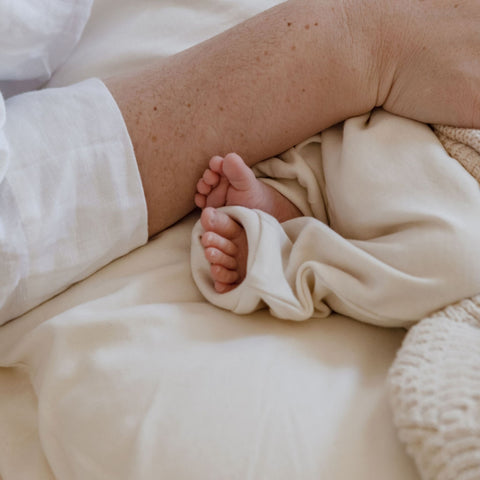
Birth education resources
So, if you’re ready to embark on your own birth education journey, here are some of Lauretta’s favourite resources to share:
Podcast – Australian Birth Stories (including VBAC Birth Stories) with Sophie Walker.
Podcast – The Great Birth Rebellion with Dr Melanie Jackson and Bernadette Lack.
Podcast – The Midwives’ Cauldron with Katie James and Dr Rachel Reed.
Movie – Birth Time the documentary (2021).
Book – The Complete Australian Guide to Pregnancy and Birth, by Sophie Walker and Jodi Wilson.
As well as some of Lauretta’s own resources:
Podcast – New in 2024!
Free Downloadables: Perineal Massage Guide, Guide to Choosing your Care Provider, and Tips to Writing your Birth Plan (available in 2024).
Monthly newsletter – The Birth Buzz.
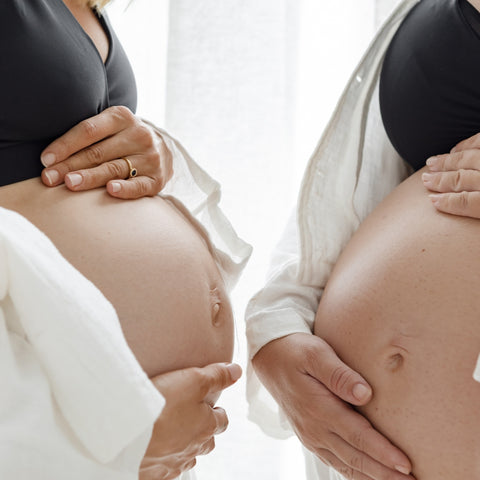
Online birth education courses
There are many options for your birth education journey, from in-person to online classes, private classes, or those in your own home. Whatever your choice, Lauretta recommends choosing one that aligns with you, the kind of birth you want to have, the preparation that feels right for you, and the format that works for you – video, audio, or in-person.
Lauretta runs 1:1 private online sessions, as well as birth education classes in-person, and now online as well.
Lauretta’s Your Online Birth Class is a self-paced online birth class designed for you and your birth partner, to help you feel confident, capable, and ready for birth and beyond.
Lauretta will help educate you at your own pace (and in your pjs if you choose!), with email support and 8 modules of bite-sized video content, printables, a workbook, and quick guides and templates.
In her course, Lauretta hopes to prepare your body, connect with your mind and your partner, and feel confident in navigating the hospital system.
Read more about midwife Lauretta Hamilton’s online course here, and if you’re interested in signing up, use the code BIGLITTLE20 for 20% off the online course throughout 2024.
And remember, this is your year, mama. We wish you all the best on your birthing education journey.

